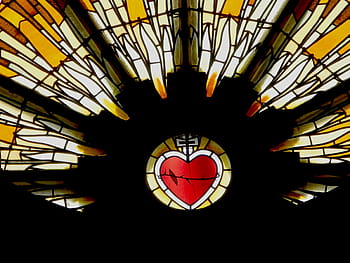
Faith, hope and love are known as the Christian “virtues”. Churches and ecclesiastical institutions sometimes resort to these three to communicate their message to outsiders. After all, they sound sympathetic. One might still question the word faith, but everyone recognizes the value of hope and love. For that reason, hope and love may provide stepping stones towards faith.
It is an understandable communication strategy, but not without a risk. After all, we could end up with two virtues that everyone already knows or think they already know. And a third that is approached by everyone with skepticism. Thus, the human character of the three virtues could become all too human (hope and love) and the religious aspect (faith) could still remain an incomprehensible specialism of the church.
Time categories
Can we simply add the Christian virtues of faith, hope and love to the four virtues of wisdom, self-control, courage, righteousness, inherited from antiquity? Perhaps that addition is already something, because usually in virtue ethics philosophers directly revert to Aristotle and the complete Christian era is skipped. This is in line with the traditional division of labor, and competition, between philosophy and theology. Since traditionally faith, hope, and love are the property of theology, philosophy likes to avoid them. But actually the time of that competition is over.
That division of labor is over if we understand faith, hope and love not so much as virtues, but as time categories. They indicate our relationship to time, past, present and future. In comparison, the ancient virtues of self-control, wisdom, courage and justice have a somewhat static character. These are what they are once and for all. They seemingly do not change over time. But what if faith, hope and love are understood as three categories that determine our way of dealing with time? Then they are not static virtues, but they indicate the tension and the rhythm of our processes of change. That requires some explanation.
Hope
Hope seems easiest to be understood as a time category. We hope for a good future. So hope and future are interrelated. That is true, but hope also strives for continuity. We always have hope for something that is known and dear to us. We hope there will be work and income tomorrow. We hope that the heritage of Western democracies also has a future. We hope for our beloved ones that they will be all right. In all those cases, we are already familiar with something and wish the continuation of it. From that perspective hope is more related to the past than to the future. If we despair of everything we are familiar with, then at some point we will only be left with some uncertain belief in the future, we don’t know how.
Faith
That means that actually the most important future-related category of these three is faith. Faith is trust in the things that are not visible. If you have to take an uncertain step without knowing where you will end up, and yet you take that step with uncertain trust, perhaps because there is no other way, then that is faith. Two people getting married take such an uncertain step. Yes, they hope everything goes well, but how well do they know each other after all and how will they get to know each other in the future? The fact that they always meet each other in different ways makes it exciting. But that also means that hope is not enough, because then one hopes that the other person will always remain the same, young, always cheerful, always energetic. Trust in the invisible future that entails uncertainty is faith. The other will present you with positive and negative surprises, but you believe in it. The New Testament always speaks of faith in Christ, but in Greek it then uses the genitive: literally it says faith “of Christ”. The New Testament thus expresses that you derive your relationship to the future from him. It is not just faith in but also faith analogous to. It means that your relationship to the future is analogous to the road taken by him. That is no longer an ecclesiastical specialism anymore. In short: you have hope when you want to continue familiar business. You believe if you no longer see how to take it further. You take a step into the unknown.
Love
So hope and faith as categories of time are at odds. The one who has hope wants to keep all the good things of the past. Whoever believes is willing to give up everything for something better with the risk of failure. Is there a bridge between revolutionaries and conservatives, between populists and radicals? That is only possible if love turns the opposing groups towards each other in order to do the one thing that is necessary now. The desire for the past and the desire for the future threaten to exclude each other. Love is always focused on the one thing necessary. But what that is, that one thing that is necessary, is always difficult and risky to judge. It is always tempting to take a middle position between two controversial parties. But the world often does not get any better from doing everything half, regardless of the fact that compromising is usually a loveless business. Love turns people around towards each other. At the right time, which no one really can control, that can happen, as a surprise, a lucky event, a gift. One thing may help: if people take a close look into each other’s eyes, it is very difficult not to love each other.